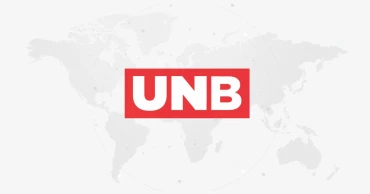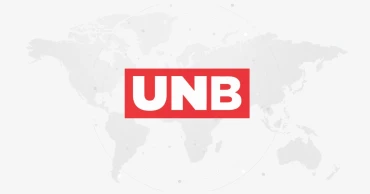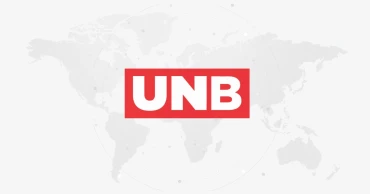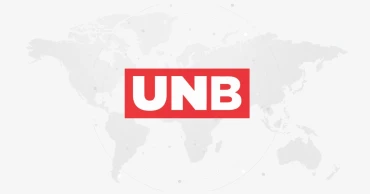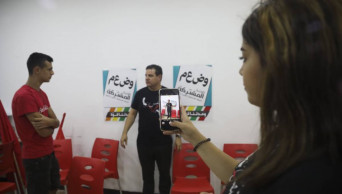Arab
A little white pill, Captagon, gives Syria's Assad a strong tool in winning over Arab states
A little white pill has given Syrian President Bashar Assad powerful leverage with his Arab neighbors, who have been willing to bring him out of pariah status in hopes he will stop the flow of highly addictive Captagon amphetamines out of Syria.
Western governments have been frustrated by the red-carpet treatment Arab countries have given Assad, fearing that their reconciliation will undermine the push for an end to Syria's long-running civil war.
Also Read: Blinken announces $150M in aid for Syria, Iraq at Saudi conference on combatting Islamic State group
But for Arab states, halting the Captagon trade is a high priority. Hundreds of millions of pills have been smuggled over the years into Jordan, Iraq, Saudi Arabia and other Gulf Arab countries, where the drug is used recreationally and by people with physically demanding jobs to keep them alert.
Saudi Arabia has intercepted large shipments of pills hidden in crates of fake plastic oranges and in hollowed out pomegranates — even pills crushed and molded to look like traditional clay bowls.
Analysts say Assad likely hopes that by making even limited gestures against the drug he can gain reconstruction money, further integration in the region and even pressure for an end to Western sanctions.
The vast majority of the world's Captagon is produced in Syria, with smaller production in neighboring Lebanon. Western governments estimate the illegal trade in the pills generates billions of dollars.
Also Read: Teenagers from Islamic State families undergo rehabilitation in Syria, but future still uncertain
The United States, Britain and European Union accuse Assad, his family and allies, including Lebanon's militant Hezbollah group, of facilitating and profiting from the trade. That has given Assad's rule a massive financial lifeline at a time when the Syrian economy is crumbling, they say. The Syrian government and Hezbollah deny the accusations.
Syria's neighbors have been the biggest and most lucrative market for the drug. As the industry flourished, experts say Damascus in recent years saw Captagon as more than just a cash cow.
"The Assad regime realized that this is something they can weaponize for political gain ... and that's when production started being on a large scale," said Karam Shaar, a senior fellow at Washington-based New Lines Institute.
Stopping the trade has been a top demand of Arab countries in their talks with Syria on ending its political isolation. Syria was readmitted last month from the Arab League, from which it was suspended in 2011 because of Assad's brutal crackdown on protesters. On May 20, Assad received a warm welcome at the Arab League summit in Jeddah, Saudi Arabia.
A possible sign of the behind-the-scenes trade-offs came on May 8, when airstrikes in southern Syria reduced the home of a well-known drug kingpin to rubble. Merhi al-Ramthan, his wife and six children were killed. Another strike destroyed a suspected Captagon factory outside the city of Daraa, near the Jordanian border.
Jordan was likely behind the strike, with Assad's consent, say activists and experts. The strike came one day after the Arab League formally re-admitted Syria, a step Jordan helped broker.
"Assad gave assurances that he would stop the regime from supporting and protecting smuggling networks," a former brigadier general of Jordan's intelligence service, Saud Al-Sharafat, told The Associated Press. "For example, he facilitated the disposal of al-Ramthan."
Jordan, he said, sees the Captagon trade as "a threat to both security and communal peace."
In public comments, Jordan's foreign minister, Ayman Safadi, refused to confirm or deny whether his country was behind the airstrikes but said it was willing to take military action to curb drug smuggling.
Arab states, many of which had backed the rebels trying to oust Assad, say they share the goal of pushing him to make peace. Ahead of the Jeddah summit, Jordan hosted a meeting of top diplomats from Syria, Saudi Arabia, Iraq, and Egypt, and the long agenda included setting a roadmap for peace talks and the return of millions of Syrian refugees.
But it was on Captagon where the gathering made the most progress. Syria pledged to clamp down on smuggling, and a regional security coordination committee was agreed on. Days later, Syrian state media reported that police quashed a Captagon smuggling operation in the city of Aleppo, discovering 1 million pills hiding in a pickup truck.
Jordan has intensified surveillance along the Syrian border in recent years and has raided drug dealers. Jordanian troops killed 27 suspected smugglers in a fierce gun battle in January.
Smuggling routes have made untangling drug networks more difficult. A member of an Iraqi militia told the AP that militias in Iraq's desert Anbar province, which borders Syria, Jordan, and Saudi Arabia, have been crucial for Captagon smuggling. He spoke on the condition of anonymity because he was not authorized to talk to the media.
Syrian lawmaker Abboud al-Shawakh denied the government profits from the drug trade and insisted authorities are trying vigorously to crack down on smuggling.
"Our country is used as a regional transit route as there are border crossings out of the state's control," al-Shawakh told the AP. He alleged that only armed opposition groups are involved in Captagon dealing.
Syrian opposition groups are believed by many observers to have some involvement in drug smuggling. Western governments, however, accuse Assad's relatives and allies of a direct role in Captagon production and trade and have imposed sanctions on a string of individuals close to Assad.
While Assad may be willing to move against some parts of the drug trade, he has little incentive to crush it completely without winning something in return from Arab states, al-Sharafat said.
A Saudi official denied reports that Riyadh had offered billions of dollars to Damascus in exchange for a crackdown. But he added that whatever the kingdom might offer Syria would be less costly than the damage that Captagon has caused among Saudi youth. He spoke on condition of anonymity in line with regulations.
The U.S. and other Western governments fear that the Arab states' normalization with Syria undermines attempts to push Assad to make concessions to end Syria's conflict. They want Assad to follow a peace roadmap outlined in U.N. Security Council Resolution 2254, passed unanimously in 2015, which calls for talks with the opposition, rewriting the constitution and U.N.-monitored elections.
So far, the resolution has gone nowhere. Since it passed, Assad regained control over previously lost territory, confining the opposition to a small corner of the northwest. His grip on power now seems solid, though much of the north and east remains out of his hands, held by U.S.-backed Syrian Kurdish fighters.
Shaar said Assad might use the Captagon card to try to get the U.N. resolution shelved.
Other concessions, like the lifting of Western-led sanctions, would be harder for him to win. While Gulf Arab states won't be able to directly inject cash into Assad's government with the sanctions in place, Shaar said they could funnel money through U.N.-led projects in government-held Syria to get action from Assad against Captagon.
2 years ago
As Assad returns to Arab fold, Syrians watch with hope, fear
Syrians living on opposite sides of the largely frozen battle lines dividing their country are watching the accelerating normalization of ties between the government of Bashar Assad and Syria's neighbors through starkly different lenses.
In government-held Syria, residents struggling with ballooning inflation, fuel and electricity shortages hope the rapprochement will bring more trade and investment and ease a crippling economic crisis.
Meanwhile, in the remaining opposition-held areas of the north, Syrians who once saw Saudi Arabia and other Arab countries as allies in their fight against Assad's rule feel increasingly isolated and abandoned.
Also Read: Moscow hosts more Turkey-Syria rapprochement talks
Turkey, which has been a main backer of the armed opposition to Assad, has been holding talks with Damascus for months — most recently on Tuesday, when the defense ministers of Turkey, Russia, Iran and Syria met in Moscow.
And in recent weeks, regional heavyweight Saudi Arabia — which once backed Syrian rebel groups — has done an about-face in its stance on the Assad government and is pushing its neighbors to follow suit. Saudi Foreign Minister Prince Faisal bin Farhan visited Damascus last week for the first time since the kingdom cut ties with Syria more than a decade ago.
The kingdom, which will host a meeting of the Arab League next month, has been coaxing other member states to restore Syria’s membership, although some holdouts remain, chief among them Qatar. The League is a confederation of Arab administrations established to promote cooperation among its members.
Also Read: Saudi foreign minister visits Syria as relations thaw
A 49-year-old tailor in Damascus who gave only his nickname, Abu Shadi (“father of Shadi”) said he hopes the mending of ties between Syria and Saudi Arabia will improve the economy and kickstart reconstruction in the war-battered country.
“We’ve had enough of wars — we have suffered for 12 years,” he said. “God willing, relations will improve with not just the Kingdom of Saudi Arabia but with all the Gulf countries and the people will benefit on both sides. There will be more movement, more security and everything will be better, God willing.”
Read More: Syria, Saudi Arabia move toward restoring embassies, flights
In the country's opposition-held northwest, the rapprochement is a cause for fear. Opposition activists took to social media with an Arabic hashtag translating to “normalization with Assad is betrayal,” and hundreds turned out at protests over the past two weeks against the move by Arab states to restore relations with Assad.
Khaled Khatib, 27, a worker at a non-governmental organization in northwest Syria, said he is increasingly afraid that the government will recapture control of the remaining opposition territory.
“From the first day I participated in a peaceful demonstration until today, I am at risk of being killed or injured or kidnapped or hit by aerial bombardment,” he said. Seeing the regional warming of relations with Damascus is “very painful, shameful and frustrating to the aspirations of Syrians,” he said.
Rashid Hamzawi Mahmoud, who joined a protest in Idlib earlier this month, said the Saudi move was the latest in a string of disappointments for the Syrian opposition.
“The (U.N.) Security Council has failed us — so have the Arab countries, and human rights and Islamic groups,” he said.
Syria was ostracized by Arab governments over Assad’s brutal crackdown on protesters in a 2011 uprising that descended into civil war. However, in recent years, as Assad consolidated control over most of the country, Syria’s neighbors have begun to take steps toward rapprochement.
The overtures picked up pace since a deadly Feb. 6 earthquake in Turkey and Syria, and the Chinese-brokered reestablishment of ties between Saudi Arabia and Iran, which had backed opposing sides in the conflict.
The Saudi-Syria rapprochement is a “game changer” for Assad, said Joseph Daher, a Swiss-Syrian researcher and professor at the European University Institute in Florence, Italy.
Assad could potentially be invited to the next Arab League summit, but even if such an invitation isn't issued for May, “it’s only a question of time now,” Daher said.
Government officials and pro-government figures in Syria say the restoration of bilateral ties is more significant in reality than a return to the Arab League.
“The League of Arab States has a symbolic role in this matter,” Tarek al-Ahmad, a member of the political bureau of the minority Syrian National Party, told The Associated Press. “It is not really the decisive role.”
George Jabbour, an academic and former diplomat in Damascus, said Syrians hope for “Saudi jobs … after the return to normal relations between Syria and Saudi Arabia.”
Before 2011, Saudi Arabia was one of Syria's most significant trading partners, with trade between the countries reaching $1.3 billion in 2010. While economic traffic did not halt altogether with the shuttering of embassies, it dropped off precipitously.
However, even before the warming of diplomatic relations, trade had been on the uptick, particularly after the 2018 reopening of the border between Syria and Jordan, which serves as a route for goods going to and from Saudi Arabia.
The Syria Report, which tracks the country's economy, reported that Syria-Saudi trade had increased from $92.35 million in 2017 to $396.90 million in 2021.
Jihad Yazigi, editor-in-chief of the Syria Report, said the restoration of direct flights and consular services following the current Saudi-Syrian rapprochement could bring some further increase in trade.
But Syrians who are looking to Saudi Arabia as a “provider of finance either through direct investment in the Syrian economy or through funding of various projects, especially concessionary loans for infrastructure projects," may be disappointed, he said. Such investments will be largely off limits for now because of U.S. and European sanctions on Syria.
Even in the opposition-held areas, some greeted the normalization with a shrug.
Abdul Wahab Alaiwi, a political activist in Idlib, said he was surprised by the Saudi change in stance, but “on the ground nothing will change ... because the Arab countries have no influence inside Syria,” unlike Turkey, Russia, Iran and the U.S., all of which have forces in different parts of the country.
He added that he does not believe Damascus will be able to meet the conditions of a return to the Arab League or that Turkey and Syria would easily come to an agreement.
Mohamad Shakib al-Khaled, head of the Syrian National Democratic Movement, an opposition party, said Arab countries had never been allies to the “liberal democratic civil movements” in the Syrian uprising but threw their support behind “factions that took a radical Islamic approach.”
The Syrian government, on the other hand had “genuine allies who defended it,” he said, referring to the intervention by Russia and Iran that turned the tide of the war.
But in the end, he said, “No one defends a land except its people.”
2 years ago
Arab leaders warn Israeli actions threaten regional turmoil
Dozens of leaders and senior officials from Arab and Islamic countries warned on Sunday Israeli actions in Jerusalem and the occupied West Bank could worsen regional turmoil, as violence surges between Israel and the Palestinians.
The meeting in Cairo was hosted by the Arab League and attended by President Abdel Fattah el-Sissi of Egypt, Jordan’s King Abdullah II and Palestinian President Mahmoud Abbas along with many foreign ministers and senior officials.
The high-level gathering came amid one of the deadliest periods of fighting in years in Jerusalem and the neighboring Israeli-occupied territory. Forty-five Palestinians have been killed so far this year, according to a count by The Associated Press. Palestinians have killed 10 people on the Israeli side during that time.
Speakers at the meeting condemned Israel’s “unilateral measures” in Jerusalem and the West Bank in statements, including home demolitions and expanding settlements.
They also condemned visits by Israeli officials to the city’s contested holy site, which is sacred to both Jews and Muslims and has often been the epicenter of Israeli-Palestinian unrest.
There was no immediate comment from Israel's government.
The officials also voiced support for Jordan's role as custodian of the Al-Aqsa Mosque, the third-holiest site in Islam. The mosque is built on a hilltop in Jerusalem’s Old City that is the most sacred site for Jews, who refer to it as the Temple Mount because it was the site of the Jewish temples in antiquity.
Since Israel captured the site in the 1967 Mideast War, Jews have been allowed to visit but not pray there. Israel claims all of Jerusalem as its undivided capital, while the Palestinians seek east Jerusalem as the capital of their future state.
Calling Jerusalem "the backbone of the Palestinian cause," el-Sissi warned of dire repercussions of any Israeli move to change the status quo of the holy site, saying they would “negatively impact” future negotiations to settle the Israeli-Palestinian conflict.
Also Read: Palestinian man, Israeli child die as bloodshed rises
He said such measures would impede the long-sought after two-state solution to the conflict, which would leave “both parties and the whole Middle East with difficult and grave options.”
El-Sissi, whose country was the first Arab nation to establish diplomatic ties with Israel, called on the international community to “reinforce the two-state solution and create conducive conditions for the resumption of the peace process.”
King Abdullah II also called for Israel to cease its violations and incursions into the Al-Aqsa Mosque.
“The region cannot live in peace, stability, and prosperity without any progress made on the Palestinian cause,” he warned.
Ahmed Aboul-Gheit, the secretary-general of the pan-Arab organization, also warned that attempts to partition the Al-Aqsa Mosque and obliterate its Arab and Islamic identity “would fuel endless unrest and violence.”
Abbas, the Palestinian president, said his administration would resort to the United Nations and its agencies and demand a resolution to protect the two-state solution to the conflict.
“The State of Palestine will continue going to international courts and organizations to protect our people’s legitimate rights,” he said.
The ongoing bout of violence has put the region on edge. Last month, U.S. Secretary of State Antony Blinken met with Egyptian, Israeli and Palestinian leaders and urged them to ease tensions.
Israel is run by Prime Minister Benjamin Netanyahu’s new far-right government. Many politicians in Netanyahu’s administration oppose Palestinian independence.
Sunday's meeting in Cairo issued a final statement that condemned what it called “Israeli's systemic policy” that aims at “distorting and changing” Jerusalem’s “Arab and Islamic culture and identity.”
The communique also urged the International Criminal Court to pursue its investigation and hold those responsible for Israel’s alleged war crimes and crimes against humanity accountable.
3 years ago
Arab fans in Qatar rally behind Morocco
Moroccans in Qatar are feeling the love from across the Arab world ahead of their country’s World Cup clash with Spain on Tuesday.
After their own teams were eliminated from the first World Cup in the Middle East, many Qatari, Saudi and Tunisian fans in Doha are now rallying behind Morocco — the last Arab team left in the tournament.
At Marrakech, a Moroccan restaurant in Doha, some employees were moved by the outpouring of support. Some even dared to dream big for the national team.
“All Arab countries felt the joy for us and helped us feel the joy,” Yassin al- Youssfi said as he poured Moroccan tea wearing the team’s bright red shirt. “I hope this feeling lasts when we hold up the cup. It will be held by Moroccan hands.”
The Atlas Lions clinched first place in Group F ahead of 2018 finalist Croatia and semifinalist Belgium, reaching the round of 16 in a World Cup for the first time since 1986. One more victory for Morocco would mean the country’s first trip to the quarterfinals.
Morocco’s success caused an outpouring of joy in the Arab world. Celebrations spread from Gaza City to Cairo. In Doha, the Moroccan community felt at home.
“In any place in Qatar, you’d find people congratulating you and cheering for you,” said Naouel Farih, chef at the Marrakech restaurant. “It gives a person so much pride and happiness that the Moroccan team reached the last 16.”
Fans draped in Morocco’s national flag gathered in Doha’s Souq Waqif bazaar on Sunday and danced late into the night in an impromptu street party. Some chanted in Arabic: “Congratulations to us on this beginning! It will go on and on!”
Read more: Flashes of Arab unity at World Cup after years of discontent
“I feel like I am in Morocco!” said Ibrahim Boutahar, a Moroccan fan who lives in Doha and joined the dancing, chanting and ululating crowd. “The vibe is Moroccan, the music ... the rituals.”
The support from other Arab and African countries has been welcomed also by fans watching the World Cup from home in Morocco.
Kadr Ighiri, a 51-year-old working in human resources in Casablanca, said he believes that backing has provided a boost for the team and will help it against Spain on Tuesday.
The Moroccan players “feel like they are playing at home,” Ighiri said. “That is key.”
Read more: Arabs unite in celebration as Morocco advances in World Cup
3 years ago
Arab leader seeks to shake up Israeli election
Jerusalem, Aug 30 (AP/UNB) — The leader of the main Arab faction in parliament has shaken up Israel's election campaign by offering to sit in a moderate coalition government.
6 years ago
